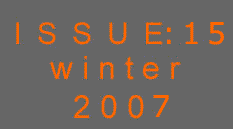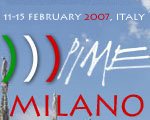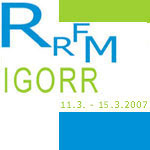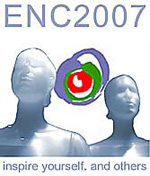
Elections of the new President and Board Members
of the Hungarian Nuclear Society (HNS)
The General Assembly of HNS took place at the
Budapest University of Technology and Economic’s Institute
of Nuclear Techniques on 12 May 2006. On the agenda was the election
of new Board members. The new Board became operational as of 1
January, 2007.
The process led to the election the following
members:
-
(a) President:
Mr. Tamás Pázmándi (Hungarian Academy
of Sciences (KFKI), Atomic Energy Research Institute)
-
(b) Secretary General (responsible for running the society)
:
Ms. Judit Silye (Hungarian Atomic Energy Authority)
-
(c) Vice Presidents:
Mr. Csaba Sükösd (Budapest University of Technology
and Economics)
Mr. József Bajsz (Paks Nuclear Power Plant)
Dr. Tamás Pázmándin, the
new President of HNS, is 30 years old. He is a scientific researcher
and research project leader at the Hungarian Academy of Sciences
(KFKI) Atomic Energy Research Institute. He graduated with a PhD
from the Budapest University of Technology and Economics and also
has a diploma from the Corvinus University, Budapest.
He has won several prizes and is the author of
many publications. His main fields of research are nuclear measurement
techniques and health physics.
Between 2001 and 2004, he was President of the
Hungarian Young Generation Network (which operates within the
framework of the HNS). This was probably the most active and successful
period ever for the Hungarian Young Generation Network and during
his time there the network won the international PIME Award for
Communications Excellence, in 2005, in Paris. Since 2004, Dr.
Pazmandin had been the Vice President of HNS.
After Dr. Tamás Pázmándi
was elected, he highlighted how HNS will tackle the new challenges
that it will face in the future. Furthermore, in the near future
Hungary will have to generate new supplies of energy. This explains
why the building of new nuclear units is on the agenda. This will
provide new opportunities for the Hungarian nuclear industry and
also means that HNS will have new challenges to meet. Dr. Pazmandin
also emphasized some of the major tasks ahead for the HNS, including:
benefiting from further exchange of knowledge and experience with
other nuclear societies, the transfer of knowledge between young
and more experienced colleagues. And, last but not at least, he
pointed out the importance of communicating effectively with stakeholders.

|






